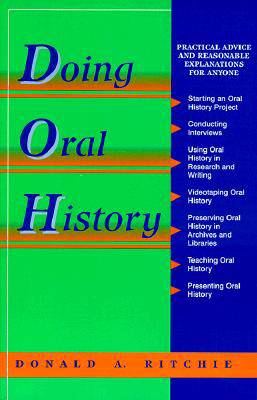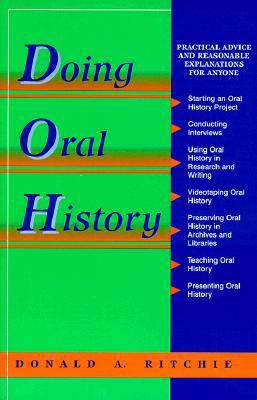
- Retrait gratuit dans votre magasin Club
- 7.000.000 titres dans notre catalogue
- Payer en toute sécurité
- Toujours un magasin près de chez vous
- Retrait gratuit dans votre magasin Club
- 7.000.000 titres dans notre catalogue
- Payer en toute sécurité
- Toujours un magasin près de chez vous
Description
Oral history is vital to our understanding of the cultures and experiences of the past. Unlike written history, oral history forever captures peoples feelings, expressions, and nuances of language. This book explains the principles and guidelines created by the Oral History Association to ensure the professional standards of oral historians. It explores all aspects of oral history, from starting an oral history project---including funding, staffing, and equipment---to conducting interviews, publishing, videotaping, preserving materials, teaching oral history, and using oral history in museums and on the radio. A definitive step-by-step guide that provides advice and explanations on how to create recordings that illuminate human experience for generations to come. Illustrated with examples from a wide range of fascinating projects, this authoritative guide offers clear, practical, and detailed advice for students, teachers, researchers, and amateur genealogists who wish to record the history of their own families and communities.
Spécifications
Parties prenantes
- Auteur(s) :
- Editeur:
Contenu
- Nombre de pages :
- 288
- Langue:
- Anglais
- Collection :
Caractéristiques
- EAN:
- 9780805791280
- Date de parution :
- 27-10-94
- Format:
- Livre broché
- Format numérique:
- Trade paperback (VS)
- Dimensions :
- 154 mm x 235 mm
- Poids :
- 426 g







